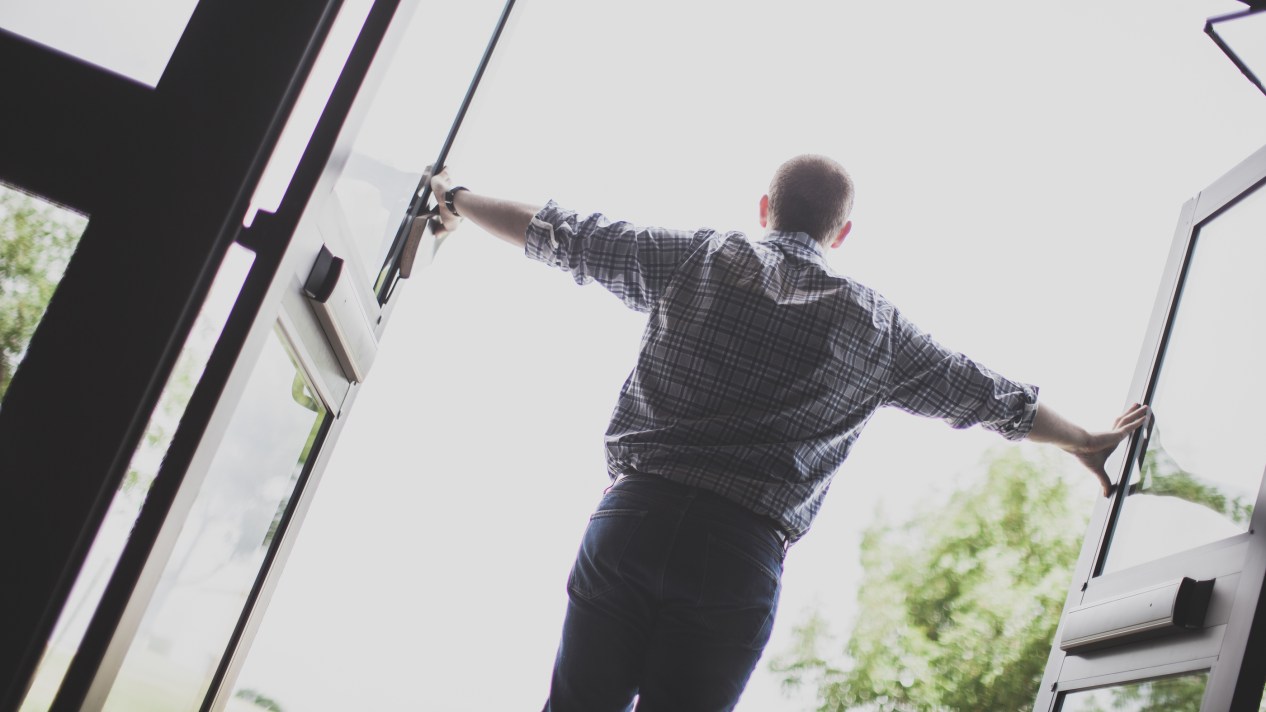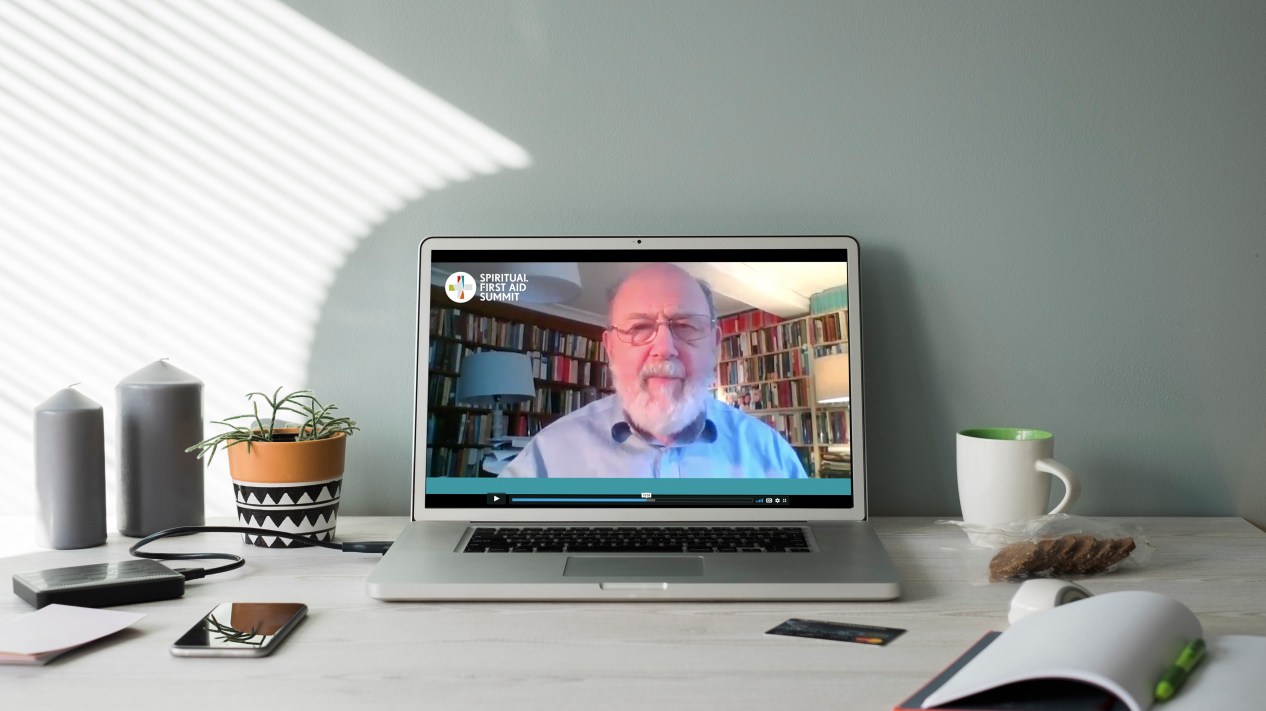Even in the best of times, it can be difficult to know how best to support someone who is hurting—and these are not the best of times. As the reality of extended physical distancing guidelines sets in, so too does the challenge of how to care for the heightened social and emotional needs of those who are struggling.
While coming together—in person—in community has historically been one of the most helpful things a church can do to help the hurting, in the age of COVID-19 precisely this behavior puts people at health risk. So how can we offer the right emotional and spiritual support from afar? And how can we address the new “pandemic” of mental health struggles being reported when there aren't resources or enough trained counselors out there to help?
Importance of Spiritual First Aid
To respond to these challenges we have developed Spiritual First Aid: A Step-by-Step Disaster Spiritual and Emotional Care Manual (COVID-19 Edition). This version is designed so people like you can step up to respond to help individuals or small groups (like couples, families, or roommates living together). We also specifically designed it for helping remotely (e.g., online or by phone) and while staying at home. Our Spiritual First Aid is not a counseling approach. Instead it teaches basic helping skills and interventions that help address common disaster needs—which in turn reduces distress—and promotes better mental health. Though it can be used by mental health professionals, we’ve designed it so that almost anyone can provide basic spiritual and emotional care.
Spiritual First Aid is an evidence-informed, peer-to-peer, disaster spiritual and emotional care intervention, designed to be delivered virtually. It is the first intervention of its kind to have been built from the ground up using evidence-informed spiritual and psychological insights from years of scientific study . Spiritual First Aid is based on 15 years of our team’s faith and resilience research that we’ve conducted around the globe after disasters, mass traumas, civil conflicts, humanitarian crises, and public health emergencies (like the Ebola outbreak). We have also spent the last four years refining and field testing Spiritual First Aid after numerous disasters across the United States. Now we have adapted this method to specifically focus on equipping you to provide spiritual and emotional care amidst the COVID-19 pandemic.
BLESS Needs
Our research has shown that helping people address 5 core unmet needs in the wake of disasters like COVID-19 can help them gain a sense of meaning, feel connected, and improve resilience:
- Belonging Needs (relationships)
- Livelihood Needs (health, finances, resources, employment)
- Emotional Needs (mental health)
- Safety Needs (suicide, harm to self, threat to others, domestic violence)
- Spiritual Needs (faith, spiritual struggles, meaning-making, purpose)
This may sound like an overwhelming task, but the goal is to work within constraints and challenges caused by COVID-19 as best as you can to provide practical solutions for addressing unmet core needs. Helping to make even small improvements now can lead to big improvements later. Doing so helps keep problems from “snowballing” and getting worse in the long-run. Likewise, our longitudinal studies have shown that addressing unmet core needs early on can improve a person’s trajectory for being able to positively cope over time.
Similarly, our research suggests that it is important to recognize these five needs are interconnected. Although only one of these needs is listed as “spiritual,” all of them have a spiritual component. This visual depiction of the five core needs in the time of crisis shows how belonging, livelihood, emotional, spiritual, and safety needs are interconnected and how they can be understood from a spiritual perspective.
The BLESS Method
The BLESS Method is Spiritual First Aid’s way to understand and respond to people’s needs. Its simple design will enable you to remember what and how to help others struggling because of COVID-19. Following the steps below will help you address what people need help with the most amidst COVID-19 with humility and practical presence.
This straightforward and intuitive four-step approach (Attend, Ask, Act, And Repeat) will help you maximize your natural helping skills to provide effective peer-to-peer support.
- Step 1: Attend. Start by taking a posture of humility so you avoid assuming you know what the other person needs most. Begin the conversation as you might normally while also being intentional about creating space for the other person to share her/his story. As the person shares, attend to details shared or observed, particularly listening for what could be an unmet core need. Be cautious not to interrupt; save your questions until the conversation arrives at a natural pause.
- Step 2: Ask. Once the other person has had some time to talk about their COVID-19 experience, use open-ended questions to clarify anything that may have been confusing, unclear, or that may warrant further conversation. Don’t accidently interrogate the person or “push” to talk about things the person isn’t ready to share. Spiritual First Aid does not try to uncover deeper issues. A good rule of thumb is to ask questions that will help you identify unmet core needs as well as strengths and resources that can help the person cope.
- Step 3: Act. After you and the person you are assisting have identified what that the most pressing unmet core need is in that moment, respond with the recommended intervention we have paired with each need (see the Spiritual First Aid tip sheet). Keep in mind that because of the nature of helping amidst COVID-19, you may only have the time or opportunity to address a single unmet core need or be limited in interaction. If circumstances permit, it may be possible to address multiple unmet needs in one interaction or over multiple interactions by making contact by phone calls, video conferencing, or texts for example.
- Step 4: And Repeat. Address other unmet core needs if warranted and possible. If more help is warranted but either is not possible in the time you have available, exceeds your ability, or requires necessary resources you lack: explore helping another time, connect the person to another helper, direct them to a faith-based or community organization, or link them to resources.
Although physical distancing doesn’t allow us to be present in all the ways we are used to, you can still provide spiritual and emotional care from your home by using these principles to walk through the BLESS Method. The challenges presented by COVID-19 create an opportunity for the church to think more creatively than ever about what it means to be the hands and feet of Jesus as we seek to faithfully respond to the great needs all around us.
Want to be inspired and equipped with a vision of how to love and care for others during and after COVID-19? Join us on April 30 for a FREE Spiritual First Aid Online Summit on how to address spiritual and emotional needs in our churches, communities, and world, presented by Food for the Hungry, Humanitarian Disaster Institute at Wheaton College, NavPress and Outreach. Learn more and register at spiritualfirstaidsummit.com .
This article is adapted from “Spiritual First Aid: A Step-by-Step Disaster Spiritual & Emotional Care Manual (COVID-19 Edition).”
Jamie Aten, Ph.D., is founder and executive director of the Humanitarian Disaster Institute at Wheaton College. Follow on Twitter at @drjamieaten or visit jamieaten.com.
Kent Annan, M.Div., is director of Humanitarian & Disaster Leadership at Wheaton College. Follow on Twitter at @kentannan or visit kentannan.com.
Posted Source Photo by engin akyurt on Unsplash
Source Photo by engin akyurt on Unsplash 

